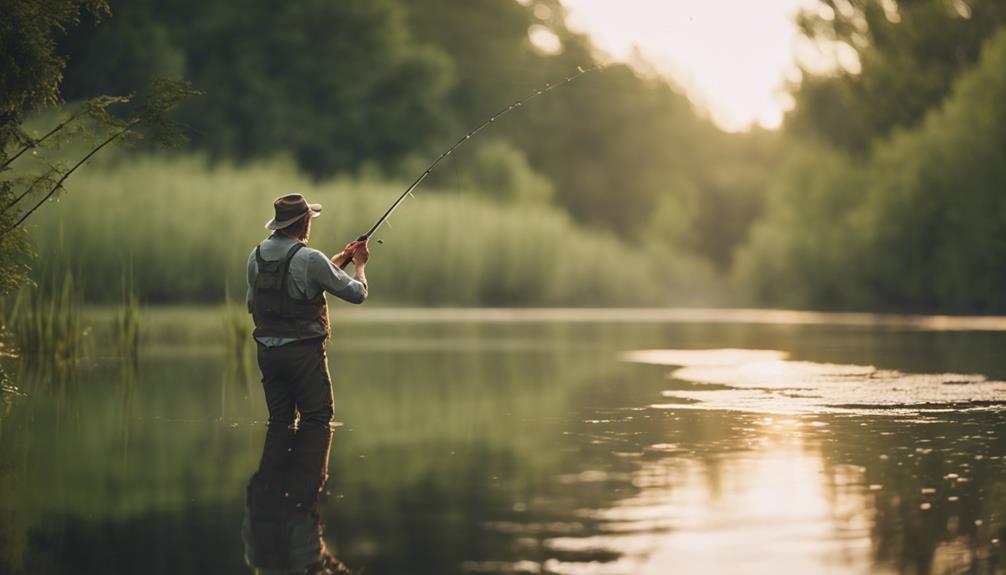Fly fishing is an exhilarating sport that combines skill, patience, and a deep appreciation for nature. If you’re a beginner looking to dive into this world, you might be wondering where to start. This guide will walk you through everything you need to know about fly fishing for beginners, from gear selection to casting techniques, and even tips for landing your first catch.
Understanding Fly Fishing: What Beginners Need to Know
Fly fishing is distinct from traditional angling techniques, primarily because it uses artificial flies to catch fish. These flies are designed to mimic the insects that fish naturally feed on. For beginners, understanding the basics of fly fishing can be quite overwhelming. The key is to familiarize yourself with the terminology and concepts, such as “tippet,” “leaders,” and “casting techniques.” Fly fishing is not just about catching fish; it’s also about enjoying the tranquility of nature and perfecting your technique.
Essential Gear for Fly Fishing Beginners
One of the most crucial steps in starting your fly fishing journey is to invest in the right gear. For beginners, a basic fly fishing outfit typically includes a fly rod, reel, line, and flies. A 9-foot, 5-weight rod is a versatile choice for most freshwater applications. When selecting a reel, ensure it balances well with your rod. You’ll also need a fly line that corresponds to your rod weight. Additionally, don’t forget about accessories such as a landing net, forceps, and a fly box to store your flies. Investing in quality gear will enhance your experience and increase your chances of success in fly fishing for beginners.
Choosing the Right Flies: A Beginner’s Guide
Selecting the right flies can be daunting for those new to the sport. Flies come in two main categories: dry flies and nymphs. Dry flies float on the water’s surface, while nymphs mimic the underwater stage of insects. Beginners should start with a few versatile patterns, such as the Adams dry fly or the Woolly Bugger nymph. Local fishing shops and online resources can provide advice on the best flies for your area. Additionally, understanding the seasonal hatches in your fishing location will help you choose the most effective flies for your fishing expeditions.
Getting the Technique Down: Casting Basics for Beginners
Once you have your gear and flies, it’s time to learn how to cast. Casting is a fundamental skill in fly fishing for beginners, and mastering it is essential for success. Start with the basic overhead cast: hold the rod with a firm grip and raise it to about 10 o’clock before casting it forward to 2 o’clock. The key is to use your wrist and arm, keeping the motion smooth and controlled. Practice in your backyard or a park before venturing to the water. Watching video tutorials or taking a beginner’s class can also greatly enhance your casting skills.
Understanding Water and Fish Behavior
To be a successful fly fisher, you need to understand the water and fish behavior. Different species prefer various habitats, so learning where to find them is crucial. Trout, for example, thrive in cold, clear streams, while bass may be found in warmer waters. Pay attention to water features like riffles, pools, and structures such as rocks and fallen trees where fish often hide. Additionally, observing insect activity on the water can give you clues about what fish are feeding on, helping you make informed choices about which flies to use.
Safety Tips and Best Practices for Beginners
Safety should always be a priority when engaging in outdoor activities like fly fishing. Always wear a life jacket if you’re fishing from a boat or a kayak. If you’re wading in rivers or streams, ensure you have the right footwear and be cautious of slippery rocks. Additionally, it’s wise to check weather conditions before heading out and to let someone know your plans. Carrying a first-aid kit and staying hydrated are also essential. Practicing catch and release can help maintain fish populations, ensuring that future generations can enjoy the sport of fly fishing.
Building Your Skills: Practice Makes Perfect
As with any sport, practice is key to improving your fly fishing skills. Don’t get discouraged by initial challenges; every experienced angler was once a beginner. Set aside time regularly to practice casting and try different techniques. You may also want to join local fishing clubs or forums where you can meet other enthusiasts. They can offer valuable advice, share experiences, and even invite you on fishing trips. The more you practice and engage with the community, the more confident and skilled you will become in your fly fishing for beginners journey.
Embracing the Experience: Enjoying Fly Fishing as a Beginner
Ultimately, fly fishing is about enjoying the great outdoors and connecting with nature. While the goal may be to catch fish, the experience of being outside, learning new skills, and spending time with friends or family is equally rewarding. Take the time to appreciate your surroundings, whether it’s the sound of the water, the rustle of leaves, or the sight of a rising fish. As you progress in your fly fishing journey, remember that patience and persistence are key. Embrace the learning curve and make lasting memories along the way.
—
Embarking on the adventure of fly fishing for beginners can be both thrilling and rewarding. With the right knowledge, gear, and mindset, you’ll be well on your way to mastering this enchanting sport. Whether you’re casting on a tranquil river or exploring a bustling lake, every outing has the potential to teach you something new and deepen your love for fly fishing. Happy fishing!
